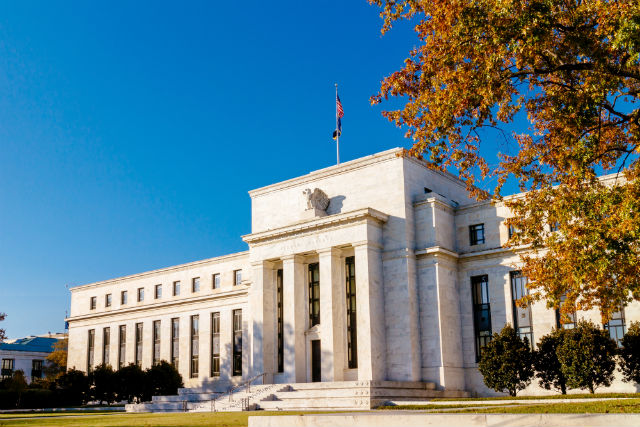This commentary was originally published on RightingFinance and reproduced here with permission.
The work of central banks is not easily understood and often takes place out of direct public view. Equipped with traditional macroeconomic tools of the trade, central bankers fulfill their main function - to keep prices stable by fighting inflation - through regulation of money supply and interest rates.
In addition to this monetary function, some (but not all) central banks are also involved in regulating or supervising the financial sector to ensure the health of financial institutions.
In the aftermath of the global financial crisis, central bank participation in sovereign debt rescheduling and support for the stability of the broader financial system is coming into sharper focus. Depending on the mandate, central banks take on other non-monetary functions as well, such as promotion of economic development, job creation, and financial inclusion. Central banks in developing countries that come under the direct influence of the executive branch (which also raises legitimate questions concerning their independence) tend to make active and creative use of non-monetary functions in ways that can directly benefit individuals and households.
There is increasing recognition that central banks have far reaching impacts on individuals and societies, presenting opportunities for central banks to align with international human rights law designed to ensure a certain floor of protection for basic living standards of all people. Among other things, a human rights-based approach, such as differentiated assessments to understand policy impacts on different groups in society, can help central banks sharpen their analysis and fulfil their obligations to implement human rights standards.
Earlier this year, IHRB and the UNEP Inquiry into the Design of a Sustainable Financial System published a paper that explores the relationship between sustainable finance and human rights. Our research uncovered examples of how some central bank functions are beginning to align with international human rights standards, including a number of examples from developing countries.
Below are four findings from the paper, focusing on central bank monetary and non-monetary functions that converge with questions of rights protection.
1. Addressing inequality

Does monetary policy play a role in wealth redistribution?
Until recently, a central banker would have given a reflexive ‘no’ answer. The 2008 global financial crisis led central bankers to deploy unconventional monetary policy, such as pumping massive liquidity in to the market and keeping interest rates ultra-low. As a result, these central bankers are now facing up to the consequence of their monetary policy: a widening inequality of wealth and income between the top and bottom quartiles of the society.
Today, some are openly reflective:
Inequality “is not the business of a central banker... Yet inequality has appeared on central banks’ radar during the crisis, sometimes flashing red. That is because, at least over the shorter term, central bank policies can and probably have reshaped patterns of inequality. Some have gone further, arguing that central bank policies of extra-ordinary monetary accommodation have...exacerbated inequalities.”
- Andrew Haldane, Executive Director of Financial Stability at the Bank of England, the Bristol Festival of Ideas, May 2014
“[A]t a time of exceptionally low interest rates and non-standard monetary policy measures, it is essential for us to be aware of all collateral effects – including the distributional ones, i.e. the potential economic damage to some parts of society.”
- Yves Mersch, a member of the Executive Board of the European Central Bank, Corporate Credit Conference, Zurich, October 2014
“The distribution of income and wealth in the United States has been widening more or less steadily for several decades, to a greater extent than in most advanced countries. This trend paused during the Great Recession ...but widening inequality resumed in the recovery, as the stock market rebounded, wage growth and the healing of the labor market have been slow, and the increase in home prices has not fully restored the housing wealth lost by the large majority of households for which it is their primary asset.”
- Janet Yellen, Chair of the Board of Governors of the Federal Reserve, Conference on Economic Opportunity and Inequality, Federal Reserve Bank of Boston, October 2014
These remarks signal that central bank authorities may be prepared to broaden their research agenda to include the social welfare and distributional impacts of monetary policy, and the challenge of addressing the “how” around taking inequality into account in monetary policy deliberations.
At a broad level, central banks can include in their policy deliberations an analysis of the impact of policy decisions on the rights of all groups in society, and an assessment of potentially negative impacts on particularly vulnerable groups. For example, monetary policy committees could publish information on how they weighted the likely impacts of an interest rate rise on pensioners, mortgage holders, those with business or consumer debt, and savers, and how they weighted these differential impacts in making their decision. The Bank of England already publishes this type of analysis, even though it is currently heavily couched in economic terms. Some will caution that explicitly rights-based analyses will compromise central bank independence.
2. Negotiating sovereign debt and debt reschedulings

While the situation in Greece is extremely complicated, and the European Central Bank (ECB) also had responsibilities to other European taxpayers in agreeing to extend financing to Greece in exchange for austerity measures, a case can be made for including a basic floor of protections for fundamental rights within creditor agreements. Indeed the question arises whether the ECB and EU breached the protections of the EU Charter of Fundamental Rights by not including consideration of these provisions in the bail-out, and whether this would have contributed to a more stable, sustainable outcome.
The UNCTAD Principles on Promoting Responsible Sovereign Lending and Borrowing provides guidance for upstream sovereign lending and borrowing. These Principles do not refer explicitly to human rights but do remind lenders that sovereign borrowers owe a responsibility to citizens on whose behalf they act, and that appropriate due diligence should be carried out prior to lending decisions. There are also moves towards the establishment of a multilateral framework for sovereign debt restructuring and sovereign bankruptcy. Human rights due diligence is particularly pertinent when a country has a poor human rights record.
The role of the ECB in the Eurozone debt crises, in particular the negotiation of austerity measures as part of bail-out deals, raises another area in which human rights apply to central bank non-monetary mandates. The ECB is a relatively new organ of the European Union, and bound by EU human rights treaties, which also bind EU member states. A range of economic and social rights, including payment of pensions, are directly impacted by the austerity packages that the ECB negotiates with European countries. As such, it should have taken these legal obligations into account in designing austerity packages in order to ensure their legitimacy and sustainability. Available records seem to suggest that the ECB was not guided by its obligations under the European human rights framework in its negotiations of bail-out conditionality and austerity measures for Greece.
3. Regulating the stability of the financial system through macro-prudential regulations

While experts debate the merits of central banks broadening their role to take on responsibilities for preserving financial system stability, a number of central banks and banking regulators in developing countries are carrying out their own quiet experiment in this area.
In 2015, Peru’s Superintendency of Banks adopted a regulation that effectively bridges the two separate functions of micro-prudential (healthy financial institutions) and macro-prudential (healthy financial system) regulations. This extraordinary framework was motivated by the perceived need to make a connection between unrest and disruptions around Peruvian mining companies from social conflict and the consequent negative impact on the health of individual banks with exposure to mining companies. The regulators saw that these events can in turn negatively impact the Peruvian financial system as a whole, ultimately affecting the country's international credit rating. To forestall such deterioration, the superintendents now require Peruvian banks to oversee the environmental and social risks of projects they finance through effective environmental, social and human rights due diligence. Borrower companies are required to engage with affected stakeholders, establish grievance mechanisms, and manage identified risks - similar to the requirements under the IFC Performance Standards and the Equator Principles.
A growing network of banking regulators and banking associations from Bangladesh, Brazil, China, Mongolia, Morocco, Nigeria, Vietnam, and elsewhere, are working to guide banks on how to conduct adequate environmental and social due diligence on projects. Their motivation for participation varies, some undoubtedly driven by a desire to promote banks' image in society. And yet it is also undeniable that attention to protection of the physical environment and natural resources, and prevention of harm to segments of society - both important human rights concepts - will strengthen the quality of due diligence of individual banks, and in turn benefit the banking system and society as a whole.
4. Promoting financial inclusion

Financial inclusion promotes access to targeted financial products and services to those living in poverty and other vulnerable, marginalized or rural populations.
According to the 2014 Global Financial Report by the World Bank, the goal behind financial inclusion is not to provide unlimited access to credit for the sake of inclusion; instead, it aims to provide access to credit and financial services to sectors of the economy and individuals who have been involuntarily excluded from the formal financial system, due to factors such as discrimination, lack of information, and price barriers. The ultimate objectives of such efforts include incorporating these populations in the system, helping them maximize the returns on their rural and local economies, and ultimately, stimulating job creation. As a result, this is an increasingly important economic agenda for developing countries, and the responsibility for implementing such policies and strategies to promote financial inclusion often falls on central banks.
Peru, Colombia, and the Philippines are long-standing financial inclusion champions. In 2015, the Reserve Bank of India (RBI) was named the top financial inclusion country of the year, with an impressive reach. The RBI has long championed institutional building for financial inclusion, regulatory safeguards, and grievance redress in this area.
Other countries, like Ecuador, are catching up. With the adoption of its 2008 Constitution, Ecuador made a commitment to promote financial inclusion, and put the Central Bank of Ecuador (BCE) in charge. The BCE’s formal mandate, financial inclusion policies and strategies, and data on access to financial services in Ecuador are well documented by the International Labor Organization (ILO) in its Employment Policy Working Paper. According to the ILO, concrete examples of BCE interventions include: (i) offering ways to receive remittances through formal, inexpensive, and safe channels; (ii) guaranteeing the rights of consumers through transparent and trusted methods of payments; and extending coverage to reach rural zones and city suburbs through mobile payments and transactions.
* * * * *
The objectives of central bank mandates are not set in stone – they do evolve over time to reflect economic conditions as well as national and global consensus on policy priorities.
At the national level, IHRB research found that more than 25 countries, many of them developing nations, refer to human rights or consumer rights in their constitutions. It is instructive to note that over half of these constitutions came into existence in the last two decades. Such changes can affect the mandates of central banks, as a key organ of the state, in both explicit and implicit ways (potentially affecting their independence).
At the global level, country commitments towards implementation of the UN Sustainable Development Goals and national contributions to tackling climate change can affect the priorities of central bank policy making.
This is what drives Mark Carney, the Governor of the Bank of England and the Chairman of the Financial Stability Board, to urge the financial sector to address risks linked to climate change and accelerate the transition to a low carbon world. These evolving priorities help open the way for human rights related concerns to be incorporated more explicitly in their processes.
The developments discussed here do not necessarily argue for broadening of central bank mandates, but instead, suggest that there is scope for central banks of both developed and developing countries to pay increased attention to aligning with human rights within the framework of their existing mandates. Greater recognition of the economic dimensions of human rights, particularly efforts to realize the rights to work, food, health, social security, housing, and security in old age, should inform central banks’ monetary and non-monetary policy operations, and thereby enhance their value to individuals and societies.





























How should businesses respond to an age of conflict and uncertainty?
As 2024 began, European Commission President Ursula von der Leyen aptly summed up our deeply worrying collective moment. As she put it, speaking at the annual World Economic Forum in Switzerland, we are moving through “an era of conflict and...
26 March 2024 | Commentary
Commentary by Scott Jerbi, Senior Advisor, Policy & Outreach, IHRB